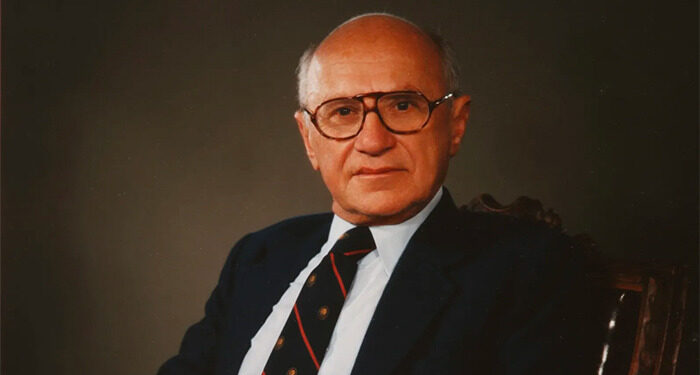Milton Friedman remains one of the most influential and debated economists of the twentieth century, shaping global policy through his advocacy for free markets, monetary stability and individual choice. His ideas helped redefine economic governance from Washington to Westminster, and continue to influence debates over inflation, welfare and the role of the state.
Early life and academic ascent
Friedman was born in Brooklyn in 1912 to immigrant parents, and his intellectual rise was rapid. After studying at Rutgers, Chicago and Columbia, he became a central figure at the University of Chicago’s economics department, a hub that would later be known globally as the “Chicago School”. His early work focused on statistics and consumer behaviour, but it was his reassessment of monetary policy and inflation that established him as a major force in economic theory.
Monetarism and the fight against inflation
Friedman challenged the post-war consensus that governments could manage the economy through large public spending programmes and discretionary fiscal intervention. Instead, he argued that inflation was “always and everywhere a monetary phenomenon”, caused by excess money supply rather than wage negotiations or consumer demand. His book A Monetary History of the United States, co-written with Anna Schwartz, became a foundational text, reshaping central-bank policy and influencing the anti-inflation strategies of the 1970s and 1980s.
A global shift towards market-driven policy
During the 1970s, as countries faced oil shocks, stagflation and rising unemployment, Friedman’s ideas gained traction. He advised several governments, promoted deregulation, and championed floating exchange rates. In the United States, elements of his philosophy guided economic reforms under Ronald Reagan, while in the United Kingdom his influence could be felt during Margaret Thatcher’s efforts to curb inflation and reduce the state’s reach into the economy. These policy shifts, though controversial, marked a major turning point in global economic governance.
Views on freedom, society and the role of the state
Beyond monetary theory, Friedman’s commitment to individual liberty underpinned his broader work. He advocated for school vouchers, reduced taxation, and a simplified welfare system. His book Capitalism and Freedom, published in 1962, connected economic choice with political freedom, arguing that an overextended state risked undermining both prosperity and democratic values. His public communication style—clear, assertive and often provocative—helped bring economic debate into mainstream political discourse.
Criticism and continuing relevance
Friedman’s legacy remains contested. Critics argue that aggressive deregulation contributed to rising inequality and financial instability, while others claim his theories were applied too rigidly or without sufficient oversight. Nonetheless, his influence on modern central-banking practice is undeniable. Ideas such as targeting inflation, maintaining monetary discipline and ensuring institutional independence remain central to policy frameworks in much of the world.
Newshub Editorial in North America – 2025-11-16



Recent Comments